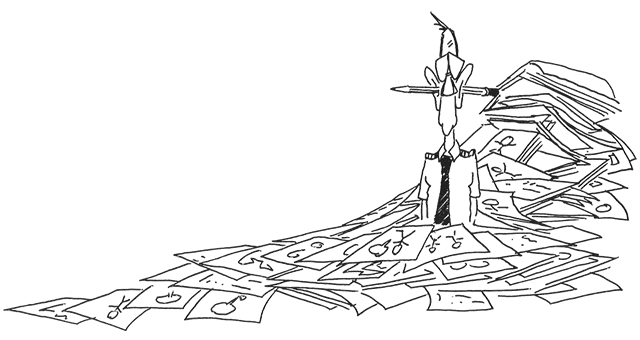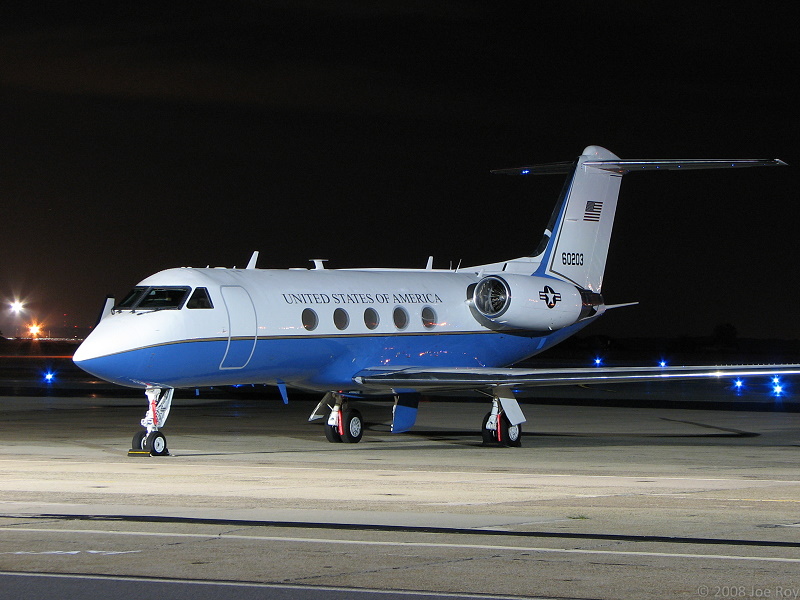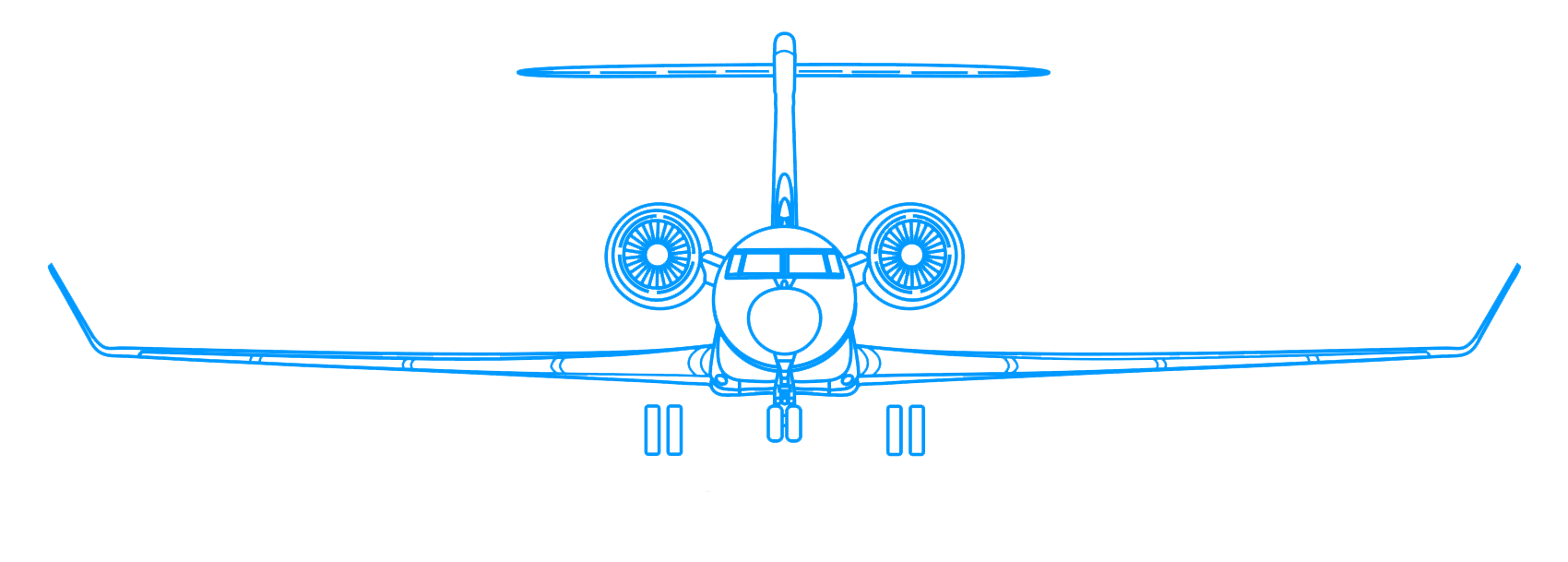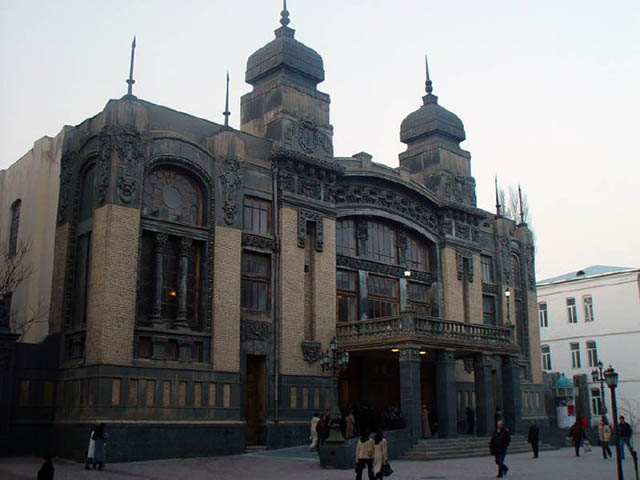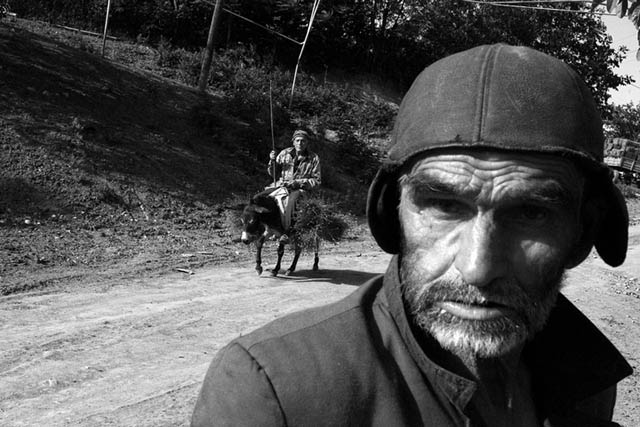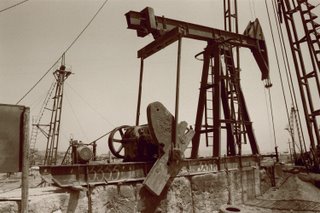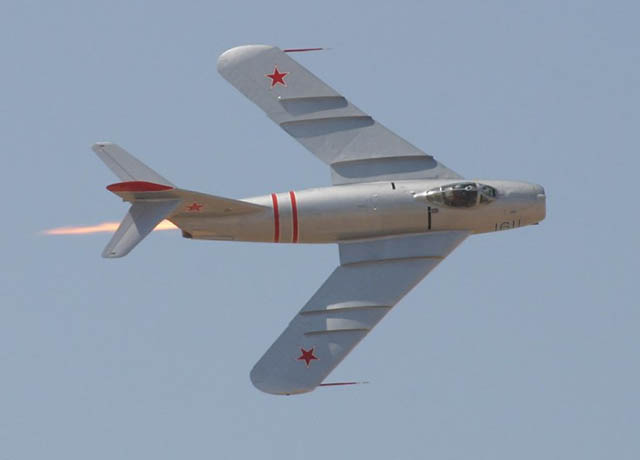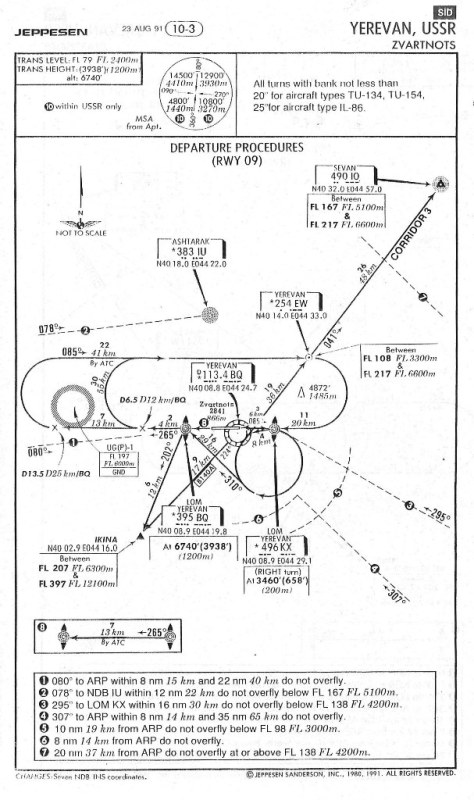This is a story about fatigue, language, the cold war, and luck. I needed an example when speaking of Desynchronosis (jet lag), and this was the only one I had ever written about. So here it is, the first time I learned the importance of . . .
— James Albright
Wake up call
“Sam shest nol dva! Sam shest nol dva! Zapretnyeff! Oborot totchas zhe!”
What was that?
“Sam shest nol dva! Sam shest nol dva! Zapretnyeff! Oborot totchas zhe!”
It sounded Russian. I knew what Sam was, that’s me. I mean that’s us. Special Air Missions, SAM. That’s our call sign: SAM 602. “Dva” is two, I remember that from Prisoner of War school. I was prisoner number two. “Zhivotnyeff Dva,” that was me. Sam shest nol dva. Nul is zero in a few languages; I suppose nol could be zero. It had to be. Sam shest nol dva is “Sam Six Zero Two.” That’s me. I mean that’s us.
I’ve been an Air Force pilot now for thirteen or fourteen years but I don’t often have dreams about flying; certainly not about flying some place over Russia with someone yelling at me in a language I barely understand. Why is he yelling at me?
The pain in the back of my head was palpable. I only get that when I haven’t slept for a couple of days. I was just in bed this morning and didn’t get up until seven. I was on alpha alert, which meant I had to stay home glued to the phone in case they had a no-notice launch in one of our Gulfstreams. The guys on bravo alert were stuck at the squadron and would preflight the airplane and get everything ready if anything happened while the alpha crew got to the airplane and took off for parts unknown. That almost never happened. So it was a long, leisurely day of forced time off. Let me see, what did I do with myself? I washed two cars, mowed the lawn, did some laundry. Why does my head hurt?
“Sam shest nol dva! Sam shest nol dva! Zapretnyeff! Oborot totchas zhe!”
There he goes again. Why was he yelling at me?
My head dropped back and hit the headrest on the seat, causing my headset to fall around my neck. I opened my eyes and in a few seconds was transported from my bed to the left seat of a U.S. government Gulfstream III. We were at 40,000 feet somewhere over Russia. Oh yes, we were launched on alpha alert about nine at night and now it was sixteen hours later. I had been awake for thirty hours. Well, not quite. I guess I was asleep for the last few minutes.
I looked around. The copilot was sound asleep and so was the engineer. I pressed the “RO” button on my interphone panel while shaking the copilot’s left arm. “Steve, you hear that?”
“Pilot, this is radio, what’s up?”
“Listen to VHF one.”
Mike, the copilot put on his best “I was only resting my eyes” act while shuffling his fuel log and the en route chart. The engineer continued to snooze blissfully.
“Pilot he is saying Sam Six Zero Two,” Steve said over the interphone, “let me see if I got any of that other stuff in my phrase book.”
“Where are we Mike?”
The copilot pushed the “Lat/Long” button on our inertial reference computer and thumbed through the en route chart. “Right here,” he said, his finger on an airway we’ve never used before. Most of this airspace was hours inside the iron curtain, hours behind the warnings on the chart. “Do not enter, aircraft will be fired upon.” Of course we had the special clearance of the Russian government. Our passengers were part of an international peace keeping team sent to quell the impending war between Russia and a recently fractured satellite entity to the south. The Azerbaijanis just shot an Aeroflot airliner right out of the sky and it was a miracle the Russians didn’t react with everything in their arsenal. That’s where we came in. I guess.
“I don’t have any of those words in my book, pilot, but he sounds pissed. Is that the guard frequency?”
It was. The Russians just recently added our western guard frequency, 121.5, to their centers. And now they were using it. Getting shot down wasn’t part of the program but nobody on the airplane speaks Russian, except the passengers. We couldn’t very well admit to them we were about to get shot down. Like we used to say at Hickam, “I’d rather die than look bad.”
I traced our route of flight along the en route chart and examined the name of every radio beacon, every town, every printed name. “Nizhnevartovsk,” I said aloud, “that sounds familiar. Anybody recognize it?”
“Tom Clancy, pilot.”
“What?”
“It was in Tom Clancy’s latest novel. The one about the Russians marching to the English Channel in a few days. I don’t remember what was special about the town, but the next war starts because of something in that town.”
“Sam shest nol dva! Sam shest nol dva! Zapretnyeff! Oborot totchas zhe!”
Well, so be it. I uncoupled the autopilot from the navigation system and turned the airplane ninety degrees to the left. “Let’s give this town a wide berth. We got enough fuel to go two hundred miles around it?”
The copilot fumbled with his fuel log and I did some quick math. Two hundred miles north, two hundred miles south was about an hour. The fuel flow gauges were showing about 2,100 pounds per hour each, so this was going to cost us about 4,000 pounds of fuel. I always took off with the maximum, either the most we could get off the ground with or the maximum we could land with. It should be okay.
“We’ll be okay,” Mike said, “if we don’t get shot down.”
Indeed. Mike kept studying the chart while I pulled out the flight plan computed for us by the good folks at Jeppesen. That checked. I looked at the U.S. Air Force intelligence summary, the one we get for all our missions to the Soviet Bloc. It looked okay too.
“Hear that?”
“What?”
“Ivan’s quiet.”
The guard frequency was silent. After thirty minutes we turned right and another thirty minutes after that right again. After an hour and a half we were on course to Azerbaijan again.
“Pilot, radio, I got some intel guy on the satellite. Button seventeen on your panel.”
“This is Major Albright, go ahead.”
“What the hell are you guys doing up there? The Kremlin is pissed, the White House is pissed, and that means I’m pissed. Don’t you know you can’t fly over Nizhnevartovsk?”
“First of all,” I said in my faux calm voice - the one I used whenever I’m getting yelled at, it makes the attacker even angrier - “I never heard of the place until a couple of hours ago. Secondly, it was on our flight plan. And my third point, the one you should be interested in, your office approved the flight plan.”
There was a moment of silence, I thought we had lost the connection. Then he came back. “Oh, I see that. Well, don’t over-fly it again.” And with a click the frequency went dead.
2
Azerbaijan
It had once been a magnificent hotel, constructed back in the days when marble was cheap and labor was cheaper. It had huge columns inside and out, and the lobby ceilings were at least thirty feet high. The furniture was elegant and ornate. Well, it was once elegant. Now everything was gray. Even the people.
Or maybe it was me. I had been up for over thirty hours and with fatigue the world always turned gray in my eyes. We ended the day’s adventure in aviation surrounded by KGB guards on the tarmac in Baku, Azerbaijan. Our passengers, four senators and four congressmen, were met immediately by the Azerbaijani head of state and we were left with the guards with Kalashnikov rifles and the KGB spooks. After paying them off with crisp American dollars, two-thousand of them with nothing higher than a twenty, we were allowed to leave the airport and found ourselves in this hotel from decades past.
Even after spending the nineteen hours in the airplane in coat and tie wishing my neck was free of its tourniquet I somehow ended in bed fully clothed, tie included. I woke to the click, click, clicking of my own teeth, chattering their enamel away in an attempt to generate some body heat. Breakfast was inedible, all ten courses of it. I managed to stomach half a cup of the syrupy coffee and made plans to get to the airplane early enough to brew an American pot of good ol’ Folgers. I was first in the lobby, an hour early, eager to leave this tomb of a hotel. I set an 8 a.m. show time for the rest of the crew and normally showed up thirty early. Most SAM crews knew that fifteen early was the minimum. As the aircraft commander, I had to be first. But I was never an hour early.
I was soon in good company. Mike, the trip copilot, trudged down the long staircase at forty early. His coat and tie looked worse than mine. If it weren’t for the new shirt, I would say he hadn’t changed at all.
“You sleep in that?”
“Yeah,” he said, “good morning to you too.”
One-by-one, everyone made it to the lobby early. Ed, the flight engineer, came into the lobby with a bang, his rollaway suitcase breaking free of his grasp and leaping the last ten or twenty steps solo. He started to curse the %$#@! Russian staircase and the %$#@! Russian marble, and the...
“Sergeant Ugly American?” I asked. He restrained the rest of his tirade.
Steve, the radio operator, showed up as if he had the best sleep of his life and looked no different than after his layover on our last trip together, at LAX I think. His compartment on our Gulfstream was the only enclosed space on the airplane, built from a closet and lined with his electronic gizmos. I know the passengers slept most of the way over and he didn’t have much to do. He was probably slept too.
Tina was last, as required by the flight attendant job description, and looked like a million rubles, as usual. No evidence of hyperthermia with her. Having lugged her bags all over the world I suspected she had her own campfire stove and goose down comforter in one of her suitcases.
We sat in silence until our embassy driver showed, and then again in silence on the drive to the airport. It was our first look at the city in daylight, or some Russian facsimile for daylight. A blanket of smog turned whatever sunrays able to penetrate the thicket into a diffuse glow with no source whatsoever. Every building was built in the same once-magnificent style, devoid of any paint for decades. Gray.
“Look at the grass,” Steve said pointing through a dirty window, “I’ve never seen grass that color.”
“What color is that?”
“Gray,” we all said at once. Indeed, even the grass was gray.
The drive to the airport was along the Caspian Sea. It too was gray. On our approach in the darkness yesterday over that very body of water we lost all navigation signals and had to set the height of the nearest obstacles as our minimum descent altitude. Now, in the semi-lightness of the day we could see those obstacles for the first time: a sea of gray oil derricks. Steve and Ed traded stories about the oil derricks in Texas and Tina joined in with her Lone Star stories. Mike and I locked eyes on the derricks, thinking back to yesterday’s uncertain approach into the darkness.
The enlisted crewmembers chatted happily for a while until they too fell silent. We entered the airport compound and got our first real glimpse of the control tower and airport terminal. Half a terminal, really. The entire western side of the terminal building was missing and you could see the insides of offices, hallways, stairwells, and even bathrooms. “What the...” Ed began to say until he caught my glance.
“It was the Armenians,” our embassy driver said, “the war has been very bad. But now is better. The enemy is several kilometers west by now. No danger.”
“No danger,” I repeated for the rest of the crew, “we are invited guests of both governments. No worries.”
That said, I pulled Steve to one side. “As soon as you get to the airplane fire up all that comm gear and call the White House. Tell them that if we don’t have a diplomatic clearance into Armenia we aren’t going.”
“Yes, sir,” he said, “is that a bluff?” Bluffing, all our radio operators knew, was the number one tool in our bag of tricks. We were allowed to throw the White House’s clout around, make threats, offer bribes; we could do whatever it took to keep the mission on schedule. It was almost always enough to get the job done. I was the biggest bluffer in the squadron.
“No,” I answered. “Those Armenians shot down a Russian airliner last year. I’m not messing with them.”
Our pretty blue, gold, and white Gulfstream was where we had left it, still surrounded by KGB. There appeared to be fifteen of them. All our squadron’s aircraft had diplomatic status. The “United States of America” painted on either side meant wherever it flew, a part of the U.S. was en route. The KGB couldn’t board the airplane. But they could keep us out of it if they wanted.
“Passport control,” the guard in front said, “no pass. Passport control.”
“KGB,” Steve said.
“$#@! KG used to be,” Ed began and ended as his eyes caught my glare.
We drove to the bombed out side of the terminal and found ourselves walking up a zig-zag stairwell, every other zig was in the open air where the wall once was. We ended on an upper floor and down a dark, poorly lit corridor. A naked bulb strung on a makeshift wire nailed to the side of wall lit our way, every twenty or thirty feet. We marched down the hallway, single file; the click, click of our heels muffled by dirt, trash, and rat droppings. At last we came to a corner and turned to see two more Russian guards standing at attention. These were cheaper versions of those around the airplane. Their uniforms were a drab brown with no ornamentation other than red epaulets on each shoulder, each with a single diagonal stripe.
Each guard remained erect at attention as we approached, each eying me suspiciously but not moving otherwise. I rapped my knuckles against the door twice, as instructed by our embassy driver. A sliding window, just wide enough for a pair of eyes, opened. Two eyes appeared and the slit closed again. A chain was unchained, a lock was unlocked, and the door opened. We walked into a barren room populated only by a desk, an enormous woman in uniform on the other side, and one empty chair opposite her. Hers was the same uniform as those surrounding our airplane, with diamonds on the red epaulets and a silver badge of some sort on her ample chest. She was flanked by two more army types, dressed like the ones outside but these with two diagonal stripes on each epaulet.
“Please to sit, kapitan.”
I sat as instructed and handed over our five green, diplomatic passports. She eyed each carefully. She read each once, starting with mine on top, and then returned to mine. I was born in Tokyo, Japan and in some parts of the world that garnered a second look. We were all very silent. I could hear Ed’s labored breathing and said a silent prayer that he would keep his mouth shut. The guards too were silent. As I waited I noticed their trigger fingers were actually on the triggers of their rifles. In the U.S. military we were taught to keep our fingers off the trigger unless getting ready to shoot.
The female army type looked up from our passports and directly into my eyes. “You are American Army, yes?”
“No,” I said with a serious face, “American Air Force. We are too good looking to be Army.”
I could hear Tina’s gasp. For a few seconds there was no sound whatsoever. I suddenly thought about those trigger fingers and about a counseling session I got years ago as a cadet about the drawbacks of a dry sense of humor.
During those interminable seconds her faced portrayed no emotion. The neurons dedicated to the English-to-Russian translation were busy at work and finally the task was done. Her faced erupted with a smile and her laughter bellowed through the room. She said something to the two guards flanking her and they too broke out with laughter.
“You may pass, American Air Force, you may pass.”
Once at the airplane Tina whipped up a six course breakfast to make up for the missing meals since our arrival and Steve got a satellite connection with our trip coordinator at the Pentagon. Mr. Phelps, an aptly named impossible mission sort, didn’t seem to care about our impending dead-in-the-water status.
I was at the midpoint of the cabin, in a seat of Steve’s choosing. He connected the Pentagon phone to the phone in seat 4R. Tina presented my breakfast there and Ed ended up opposite and facing me at 3R. Steve took the seat opposite me and Tina was opposite Ed. The only missing crewmember was Mike, who took his meal in the copilot’s seat. I cradled the phone against my shoulder as I built an egg sandwich from the ingredients on the plate. I had never had an Egg McMuffin before, but watching Tina do the same it seemed like a pretty good idea. Finally my phone connection came alive.
“We are supposed to carry the White House peace keeping team from Azerbaijan to Armenia tomorrow,” I said in my most matter-of-fact tone, “but we can’t do that without a diplomatic clearance from both governments.”
“You can’t do that,” he said over the push-to-talk satellite connection. The single duplex phone meant only one of us could talk at a time while the other listened. “They are at war with each other. Over.” Over the years the term “over” had been dropped, but novices with these systems couldn’t resist.
“Hence the term, ‘peace keeping team.’ That’s why we are here.” I flew my right hand over my head, gesturing to the crew. “You going to handle this, Mister Phelps?”
That chore done, I returned to my eggs. Just then there was a loud explosion and the ground beneath the airplane shuddered. Mike yelled from the cockpit. “You guys gotta see this.”
The crew made its way to the cockpit and I plopped myself into the pilot’s seat, egg sandwich in hand. Ahead of us in the distance, maybe a mile or two, there was a plume of black smoke billowing against the dirty blue sky. “What caused that?”
“A Sukhoi,” Mike answered, “or maybe it was a Mig.”
“You shitting me?” Ed was crouched between us, craning his neck skyward. “A Russian fighter?”
Before Mike could answer I saw the evidence screaming against the horizon to our left. The fighter swooped down towards the original plume and released its payload. We saw a second plume and a second later heard the loud kaboom as the airplane pulled up and zoomed out of our sight.
“What are we going to do?” The question seemed to come from everyone behind me but was obviously directed to me. It was a ridiculous question. What could we do?
“Okay,” I said with the somber air required by the situation, “here’s the plan.” Each listened intently; I had the stage to myself. “If the fighters are still here tomorrow we’ll takeoff as scheduled. If that fighter comes up I’ll execute a scissors maneuver and get Ivan right into our six o’clock position.” I demonstrated with my hands crisscrossing each other and finally with one behind the other. Mike suppressed a grin. “Tina, I’ll call back to the galley. At the last minute I’ll press hard left rudder and put Ivan off our back right. Tina will open the microwave door and put the oven on Hi and press start. Thirty years from now Ivan will get cancer. Boy will he be sorry.”
Everyone just stood there in silence. Their faces scanned the gamut from abject horror to stunned dismay.
“Don’t worry about it, guys.” Wow, I didn’t expect that. “Steve get me our White House military contact on the phone.”
Ivan was news to the White House too. We stayed in the airplane with the APU running for another five hours, waiting for the return phone call. Tina and Ed played cards, Steve read, while Mike and I just sat in the cockpit and talked.
“Are we really going to take off with fighters in the air?” Mike still had the hint of a grin on his face.
“Of course not.”
Just after lunch was served our phone call came in. “We got your clearance to leave tomorrow, major.” The caller was from the White House military office, an annex building adjoining the big white building on Pennsylvania Avenue. He kept his side of the phone keyed so I couldn’t interject the obvious question. “Your Azerbaijani clearance number is four, seven, oscar, alpha, two, one. Your Armenian clearance number is tomorrow’s date followed by sierra, alpha, mike. So now you have what you need, right?” He released his end of the conversation.
“What about the fighter strafing the airport?” I released my push-to-talk button, thinking the word ‘strafe’ might not be accurate.
“Oh yeah,” he answered, “turns out that was strictly for your benefit. It was a single fighter sent to the airport just to let your passengers know the bad guys could reach them if they wanted to.”
“Who are the bad guys?”
“Who, indeed. Don’t worry about it major, both sides agree the sky belongs to you tomorrow.”
After another night in our hotel with no heat, restaurant with no food, and another visit behind the plain brown door and our Russian lady friend, we collected our passengers and left. There was no Russian fighter and no need to execute my brilliantly conceived scissors maneuver.
Mike and I were joking about it in the cockpit when Tina came up to refill our coffees.
“You pilots,” she said as she turned on her heels, “You are either very brave or very stupid.”
“Or maybe both,” Mike added.
Continued . . .
This story continues: Meaconing
